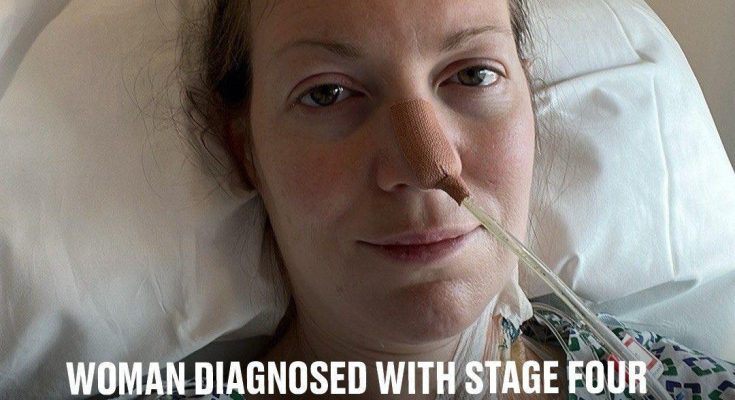The concealed symptoms that were first disregarded by medical professionals were revealed by a woman with stage four cancer.
For Zoe Gardner-Lawson, this meant being informed she had a urinary tract infection when, in reality, she had colon cancer. Unfortunately, it seems all too typical to read about someone’s health being disregarded or ignored.
In August 2024, the 36-year-old’s doctor called and ordered five days of antibiotics when she developed a persistent, dull discomfort in her lower back.
The mother of three felt “fit and healthy” prior to this, but the discomfort persisted, so she was administered two more dosages over the course of a month.

“There was just no change – and by my third dose, I’d really deteriorated,” Zoe stated. “I was basically bedridden—I felt so unwell, and the back pain had spread to my abdomen, too.”
The Berkshire woman was back at the GP in September, still in pain and without any answers, when they suggested that she go directly to A&E.
Following a physical examination and a review of her symptoms, the doctors there determined that kidney stones might be the cause. She was referred for blood tests after a CT scan revealed this wasn’t the case.
Checked for creatine reactive protein, Zoe explained: “They were rising, until they reached 364n/mol – a normal range for women is 52.9n/mol and 91.9n/mol. A general surgeon came to see me, and he said it looked like I had fluid build-up on my abdomen.”
At this point, Zoe ‘threw her toys out the pram’ and insisted on a full-body CT scan.
After two months of this sudden onset of pain, it was discovered that she had a lime-sized tumor on her colon that had caused a perforation and had spread to the lymph nodes of her stomach, liver, and peritoneum.
Before the tumor was removed in an emergency operation in early October, a physician informed her that she might have had to live with it for as long as four years.
Zoe was informed that she would require treble her chemotherapy dosage each round when a biopsy indicated that it was a malignant blastoma, one of the most aggressive types of cancer.
Her sixth round of chemotherapy is quite “hardcore,” and she thinks her prognosis is still uncertain.
“The plan is, once I’ve had my sixth round of chemo, they’re hoping I’ll have responded well,” she stated. “All being well, I’ll need to be booked in for a second surgery—to remove remaining stomach lymph nodes and two tumours on my liver.”
Zoe’s colon was punctured by a lime-sized tumor that had progressed to her liver, peritoneum, and stomach lymph nodes (SWNS). The minimum age for bowel cancer screenings should be lowered to ‘at least’ 30, according to Zoe, whose pain signs were originally disregarded.
“If my disease was caught earlier, it would’ve been easier to treat… I think the minimum age for testing needs to reduce,” she said.
To ease her financial concerns and pay for her alternative therapy, Zoe has a GoFundMe page.
According to the NHS, the primary signs of colon cancer include: changes in your stool, such as softer stool; unusually high or low levels of diarrhea or constipation; wanting to urinate more or less frequently than you typically do; bleeding from your butt; blood in your feces, which could seem red or black; frequent urges to urinate, even after using the restroom; abdominal pain, a stomach lump, bloating; unintentional weight loss; and feeling excessively exhausted without cause.



